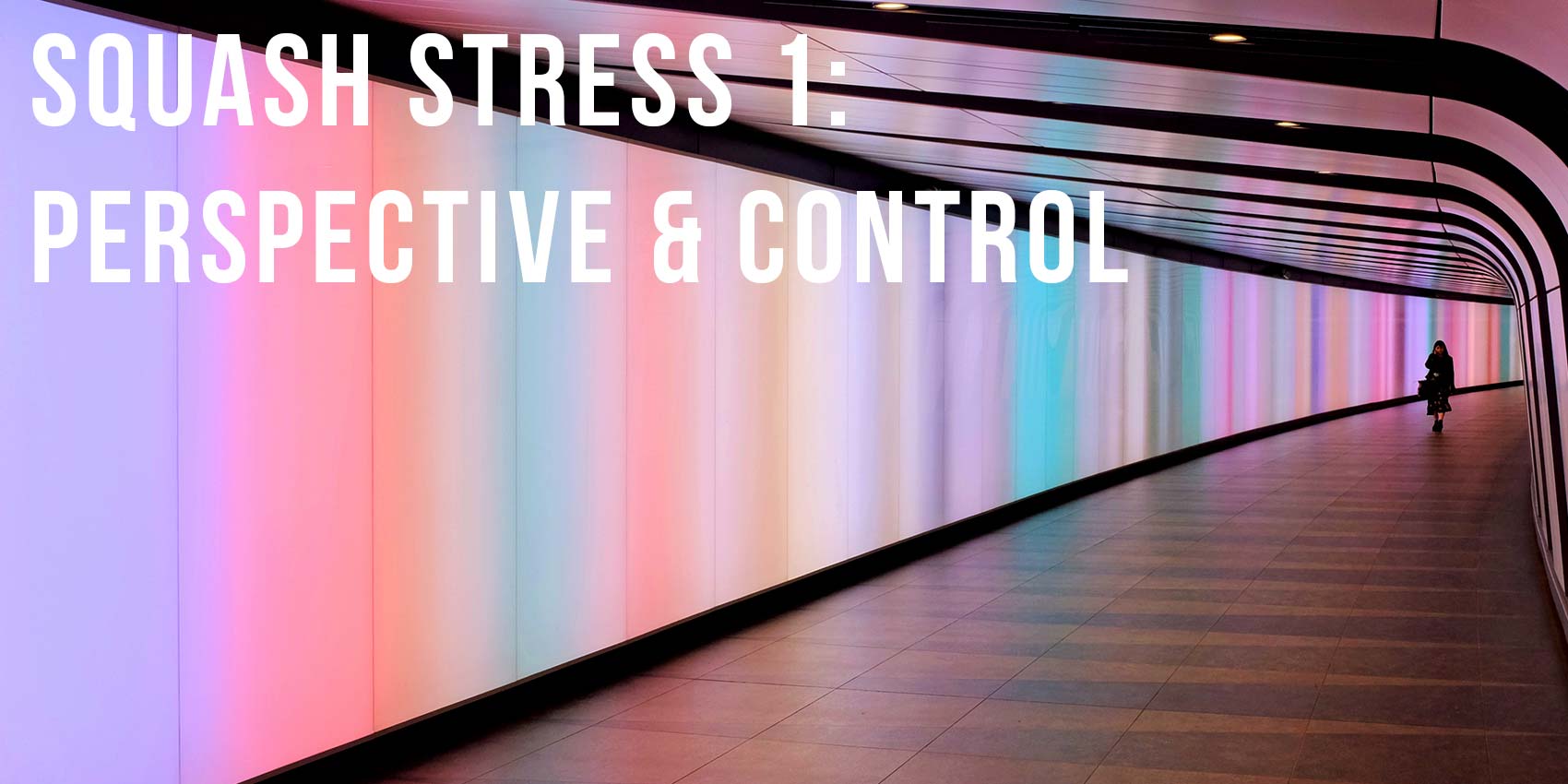21 Mar Squash Stress 1: Perspective & Control

Perspective
Perspective is how you look at things. Some people use the example of a glass of water filled half way. Do you consider it half full or half empty? Your perspective is considered either positive or negative depending on your answer: half full is considered a positive perspective, half empty is considered a negative perspective. When your perspective is always negative, you are more likely to experience stress. So here are some ideas on how to shift your perspective to the positive and decrease your stress.
Instead of focusing on the negative aspects of a situation, try to put things in a positive perspective.
For example, you may not want to move to a new town, but focusing on the positive aspects of moving can decrease your stress: I’ll meet new people; I’ll learn how to handle new situations, preparing me for when I go to college; My new school looks cool, they have an amazing football field; I’ll be living in a new part of the country where I’ll get to ski regularly.
Or, as another example, if you do poorly on a test, focus on the future: Now I know what I need to study more; It’s just one test; I can do better next time.
Here, try out a perspective for yourself: find one positive way to look at the following situations… (we’ll give you other ideas at the end)…
1 You broke your pinky.
2 Your sister read your private text messages.
3 Someone tagged an awful picture of you on Facebook.
How easy/hard was that for you? It can take a little practice if you’re not used to looking at the sunny side of life. Below are a few ideas on how you can shift your perspective to the positive by thinking:
1 At least I didn’t break my hand!
2 I needed a better password anyway… thank goodness it was her and not my parents.
3 Now when anyone sees me in person, they will think I look great!!
Perspective helps you to appreciate the things that you have. Think of something you appreciate now that maybe you didn’t just a few minutes ago.
Control
To reduce stress, focus on aspects that you can CONTROL: In any given situation ask yourself: Is it in my control or out of my control?
Let’s return to the example of moving from one town to another. If you are moving, you can’t control the fact that you are moving. However, you can control what items you pack in your suitcase, how much you know about the new place you are moving to, how you keep in touch with your old friends, etc.
Likewise, if you have a test coming up, you can’t control what is on the test, but you can control how much you study, how much sleep you get the night before the test, and what you eat for breakfast. Once the test is over, how you did is out of your control. You can’t control how the test will be graded (on a curve or not) and you can’t control how the teacher interprets your essays. Since you can’t control that, let it go by focusing on other things you need and want to do.




WLKHS1307
Posted at 12:58h, 11 OctoberAlthough I did poorly on this test, there will be other tests in the future that I can get good grades on to make up for it. Besides, you shouldn’t stress over one bad grade.